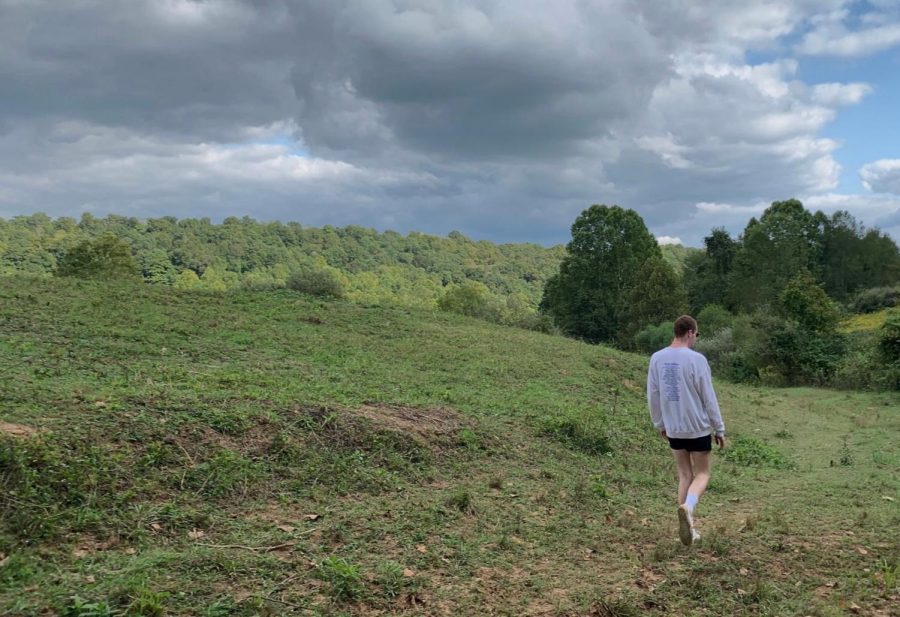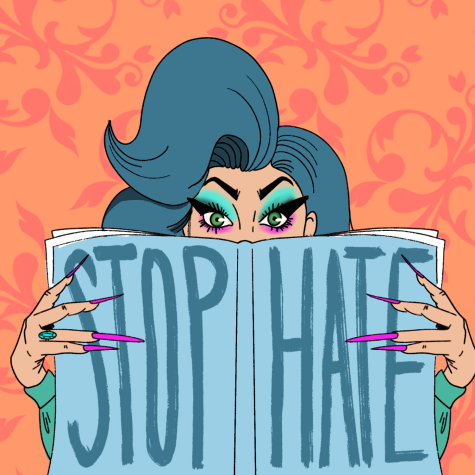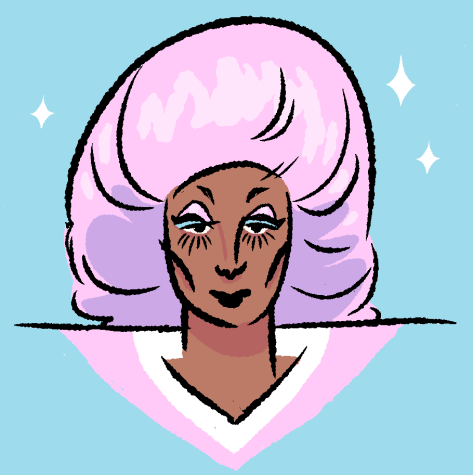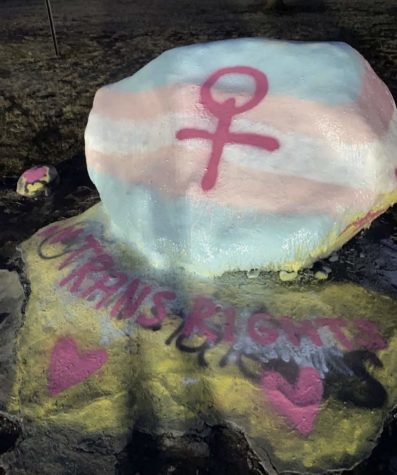OPINION: Growing up as an outsider (FUSION COLLAB)
Dylan Walker steps across a field in Appalachia, Ohio.
April 17, 2023
This article is in collaboration with Fusion Magazine.
In late 2013, I found myself moving to a town most have never heard of.
Tucked away between the edge of the Ohio River and a West Virginia town most known for the cryptid “Mothman” that locals claim inhabit it, Gallipolis, Ohio, has just 3,000 residents in the city proper. It’s the kind of town where your neighbor works at one of three car dealerships and your middle school teacher oversees the Christmas lights in the park.
There’s a lot to be seen within the tight-knit communities of Appalachia, but as an adolescent on the cusp of a coming-of-age journey, there was much I wish I had gone without.
At 10 years old, I found myself in Gallipolis. Previously, I had only ever visited the town to see family. I knew living here would be a challenge.
On the first day of fifth grade, I walked into my classroom turning heads. Every new kid goes through this. But, where some people could blend in, I immediately was the new harsh contrast. I was not like the other boys (and even girls at some points). I was artsy. I was pale with red hair, freckles and glasses. I sang and did theatre.
I was flamboyant.
There is a stigma when it comes to regions like Appalachia – drugs, lack of education, poverty and small-mindedness. From sexism to racism to homophobia, this was a spitting image of what would soon be coined as “Trump’s America.”
Are all the attributes which I mentioned present here? Yes. But, they’re everywhere. They are just heightened in small communities like this one.
Small communities tend to rely on one another, and communities that rely on one another tend to be cliquey. I tried to mesh with my peers, but it never worked. I tried sports. I tried community theater. I tried music. But I always felt outside. Alone, even.
Coming from a liberal set of parents, the way of thinking in Gallipolis was something I had never met before. It shocked me until I left Gallipolis permanently at the age of 19. Navigating the bigoted rhetoric was a learning curve that accompanied my coming out the summer before beginning high school.
Coming out at home was easy. It was the thought of the community’s reaction that scared me and my mom the most. She owned and operated a successful marketing agency that honed in on small businesses to ensure they would succeed in the age of digital advertising. It was something a lot of mom-and-pop shops wished to not understand, especially here. There was a sense of fear that she would soon be in uncomfortable conversations about her kid when prospective clients would walk through the door.
Everyone knew me. I was highly involved both in and outside of school. From volunteering to show choir to being a teacher’s assistant for elementary-aged students– I filled my spare time with as much as possible to ensure there was no sulking about the fact I never truly felt a part of something.
What I grew to understand is that I didn’t necessarily need this community, but what I needed was coming to terms with the acceptance of myself. I left family. I left friends. I left adolescent Dylan.
What I always longed for was a queer circle of friends. In leaving for college, and through much trial and error, I finally found a set that I know I can count on today. Chosen family is the best family, and I wouldn’t want it any other way. This was my new community.
I am one of the few who found themselves leaving the community in Gallipolis behind. It’s a cycle I was never met with but can empathize with those who will struggle in finding a new way. Looking back, it’s home.
There will always be something special about graduating with a class that couldn’t fill an auditorium if it tried. Or making two friends that will continue to stay in touch no matter the distance or time zone.
The community that still stands in Gallipolis today will forever be intact. Community is important no matter where we go. This community just was not the one for me, nor was I the one for them.
The population of regions like these tends to be generational. Born here, grows up here, has kids here, dies here. That was not me. There is too much to be seen or to be heard rather than staying comfortable. For me at least. What we wish to fill our lives with is subjective and as hard as I tried to squeeze my way into this community, it was never a perfect fit. It was no Cinderella glass slipper. For the better.
Dylan Walker is an opinion writer. Contact him at [email protected].






















